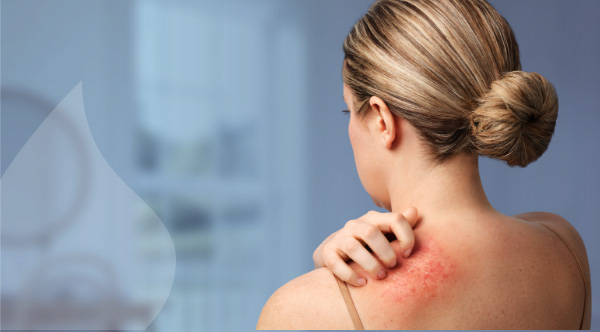Alphyn’s zabalafin hydrogel (AB-101a) performed well in patients with atopic dermatitis (AD), including disease commonly associated with Staphylococcus aureus and methicillin-resistant Staph, according to new Phase 2a data.
Zabalafin hydrogel is a novel, first-in-class complex single-source botanical drug with multiple bioactive compounds that provides multiple mechanisms of action, including anti-pruritic, antibacterial, and anti-inflammatory activity.
The drug demonstrated significant and clinically relevant improvements in itch, patient-assessed quality-of-life indicators, inflammation, and safety, with minimal side effects and strong patient tolerability when compared to baseline.
“There are well-known shortcomings with current atopic dermatitis therapeutics that, while effective, treat only the inflammatory component of the disease, and have side effects and safety warnings that restrict long-term and continuous use,” says Dr. Stephen Shumack, Principal Investigator in the Phase 2a trial and a dermatologist in Syndey, Australia, in a news release. “This trial suggests that zabalafin hydrogel could address these shortcomings by treating, in addition to AD’s inflammatory component, both itch and AD’s bacterial component, which are known to be associated with AD flares. Importantly, zabalafin hydrogel’s minimal side effect profile and excellent patient tolerability, combined with its efficacy, suggest it offers patients a worry-free option for continuous, long-term use.”
This first-in-human trial assessed the safety, side-effect, patient tolerability, and efficacy of zabalafin hydrogel against, for the first time, the bacterial component of AD as well as the standard AD inflammation component in mild, moderate, and severe disease.
Endpoints included reduction of itch, improvement of patient quality of life, evaluation of safety, side effects and patient tolerability, Skin Infection Rating Scale (SIRS) improvement, reduction in body surface area (BSA), improvement in Investigator Global Assessment (IGA), and improvement in Eczema Area and Severity Index (EASI) score. Results were obtained on patients ages 2-45 who were treated for either 8 weeks (10 patients) or 12 weeks (8 patients) with zabalafin hydrogel, using as the control the vehicle arm from the first cohort of the clinical trial evaluating zabalafin hydrogel against the inflammation and staph bacteria-associated AD flares components of AD for 4 weeks (41 patients).
Results are as follows:
- 68 % experienced an itch score improvement of at least 4 using the Numerical Rating Scale (NRS) at the blended end of treatment (EoT)
- Itch reduction was demonstrated in immediacy of onset and long-term
- 90% had a Patient Oriented Eczema Measure (POEM) scale quality-of-life improvement of at least 6 at EoT
- All patients showed a steady decrease in SIRS score, demonstrating control of the Staph bacteria-associated and other AD flares
- 74% achieved a SIRS score improvement of 6 or more points, equal to an improvement of 62% at EoT
- 84% of patients with infected AD skin were cleared at EoT
- Effectiveness against bacteria was equivalent to treatment with the gold-standard Vancomycin; one incidence eliminated bacteria resistant to Vancomycin
- 84% of patients achieved an EASI50 score, 50% achieved an EASI75 score, and 10% achieved an EASI100 score at 12 weeks
- 50% of patients experienced a reduction of the inflammation component of AD as indicated by 2 or greater improvement in the IGA score and IGA score achieving clear or almost clear at 12 weeks
- 90% of patients experienced a 1-point reduction in IGA score at EoT, demonstrating nearly all patients were helped and showing some improvement in their AD
- Only 1reported treatment-emergent adverse event (TEAE) of mild transient stinging in 1 or 2 study visits for 3 participants, indicating minimal side effects and strong patient tolerability at EoT
“We’re very excited about these data, which, combined with the positive data reported from the first cohort of the Phase 2a clinical trial program, demonstrate the potential of zabalafin hydrogel as a drug of choice for AD and the promise of our Zabalafin Platform,” adds Alphyn CEO Neal Koller. “With new and multiple mechanisms of action, zabalafin hydrogel could be the first complete AD treatment capable of directly targeting all the components that cause and worsen the disease. Based on these results, we’re preparing for a global Phase 2b clinical trial in the second half of 2024 as we raise our Series B financing.”


